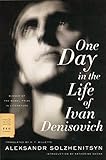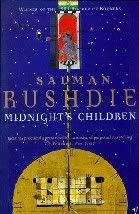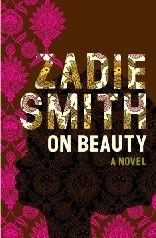Saleem Sinai, our narrator, was born on August 15th, 1947, just as the clocks stroke midnight. This is the exact moment of India’s arrival to independence, and he, along with all the other children born between midnight and one in the morning that day, has extraordinary powers. Some of the Midnight Children can fly, others can change their sex at will, others have the power of true sorcery, and yet know the secrets of alchemy. Some dazzle others with their superhuman beauty; others can travel in time or multiply fishes. Saleem’s gift is the most powerful of them all: he can see into the hearts and minds of men.
Saleem tells the story of his life – which is also the story of his true-twin, India – to his lover Padma. The story begins thirty years before he is born, when his grandfather returns to India after studying medicine in Germany and meets his grandmother in a very original way. The first section of the book is devoted to the lives of Saleem’s family before his birth. In the second and third sections, Saleem’s childhood and early adulthood are intertwined with the life of the newborn country: the formation of India and Pakistan and his birth, the war between India and China and the marital problems of his parents, the tumultuous relationship between Pakistan and India, which eventually led to war, and his exile, the emergence of Bangladesh and Saleem’s experience with death and loss, Indira Gandhi and the state of Emergency and his downfall.
I really liked the Arabian Nights-esque device of having the story being told by the narrator to his lover. The writing style is very much reminiscent of oral tales, and Padma’s interruptions are interesting and colourful. There aren’t all that many authors that can pull off that sort of rambly storytelling style successfully, but Salman Rushdie is no doubt one of them.
I have to say that I have somewhat mixed feelings about the term "magic realism". It seems to me that sometimes it is used as an attempt to, to paraphrase Terry Pratchett, give Fantasy a bath, dress it up in a suit and tie, and take it to a cocktail party to be introduced to Respectable People. Take a look at this
wikipedia definition, for example:
magic realism (or magical realism) is an artistic genre in which magical elements or illogical scenarios appear in an otherwise realistic or even "normal" setting. This is not very helpful as far as definitions go, because the exact same thing could be said of urban fantasy. This definition would only successfully distinguish magic realism and fantasy if we exclusively considered alternative world fantasy, but that would be a very narrow, and thus misleading, definition of fantasy.
But on the other hand, there is a very specific storytelling mode that I find in the works of Gabriel Garcia Marquez, Daniel Wallace, Jonathan Safran Foer to an extent, and Salman Rushdie, and magic realism is as good a term as any to describe it. As I was reading
Midnight’s Children, I asked myself: what is it exactly that makes this storytelling mode so distinctive? The answer that I came up with may not be entirely adequate, but here it goes anyway: for me, in a book like
Midnight’s Children, suspension of disbelief works differently. It is a book in which, like in a fantasy, we are told things that go beyond the boundaries of the real. But, unlike in a fantasy, we do not necessarily take them at face value. We do not necessarily trust the teller of the tale (of course that there can also be fantasies in which this is also the case, but bear with me). We go along with the story, yes, but there is a subtle understanding that, in the world of the story itself, the extraordinary events are perhaps metaphorical, are maybe a way to convey a mood or a feeling that could not otherwise be conveyed. Saleem is a narrator that constantly challenges the reader’s faith in his accuracy. For example:
“…But now Padma says, mildly, ‘What date was it?’ And, without thinking, I answer: ‘Some time in the Spring.’ And then it occurs to me that I have made another error – that the election of 1957 took place before, and not after, my tenth birthday; but although I have racked my brains, my memory refuses, stubbornly, to alter the sequence of events. This is worrying. I don’t know what’s gone wrong.
She says, trying uselessly to console me: ‘What are you so long for in your face? Everybody forgets some small things, all the time!’
But if small things go, will large things be close behind?”
There are many other instances in which he tells Padma (and the reader) that even though what he is about to tell is unbelievable, they must believe him, and interestingly enough this plea tends to have the opposite effect. It’s not that it boycotts the story, it’s not that it makes it any less engaging, it’s just that it changes the way in which it works. We become more aware that we are witnessing a process that is akin to mythmaking.
Other things I liked about this book: the many references to Hindu mythology even though Saleem’s background is Muslim, the points that were made about freedom and oppression, poverty and inequality, and the dangers of religious extremism, the colourful portray of Bombay and of Indian culture (or cultures) in general. I also loved the way the second part of the book in particular recreated the world of a child so successfully. Saleem grows up in a villa in Bombay, and his description of his own experiences and of the way he, as a child, understands the lives of the adults who surrounded him, plus his discovery of his telepathic powers and his description of his first crush on a girl named Evie Burns, were my favourite parts of the book.
In the third section of the book, the story becomes very overly political, and I saw that Rushie’s harsh portrait of Indira Gandhi and her policies caused some controversy. Some of the things described in the book are pretty horrific, but I have to say that I simply don’t know enough history to judge whether or not Rushie was being too harsh. This book made me want to learn more, though, and that can only be a good thing.
There is much, much more to the book, and I fear that I am not making it justice. It’s just one of those books that encompass innumerable different things. If you got ten people who all agreed that it was a great book in a room and asked them to tell you why, I’m sure they would come up with ten different reasons why they loved it. To sum it up: I found Midnight’s Children an original, engaging and stimulating book, and I would recommend it to anyone with an interest in history, different cultures, myths or simply good stories.
 The third book set in and around New Crobuzon, Mieville's created world of humans and various new species living together. It centres around two groups of people. Cutter has left New Crobuzon in search of golem-maker and lover Judah Low with a couple of others. They are searching for him to help lead them to Iron Council. Iron Council has become a mythical figure for those who rebel against the government as they are the only rebels to have continued to elude the government and militia. Judah can help find Iron Council as he claims he was once a part of it.
The third book set in and around New Crobuzon, Mieville's created world of humans and various new species living together. It centres around two groups of people. Cutter has left New Crobuzon in search of golem-maker and lover Judah Low with a couple of others. They are searching for him to help lead them to Iron Council. Iron Council has become a mythical figure for those who rebel against the government as they are the only rebels to have continued to elude the government and militia. Judah can help find Iron Council as he claims he was once a part of it.
 )
)




















